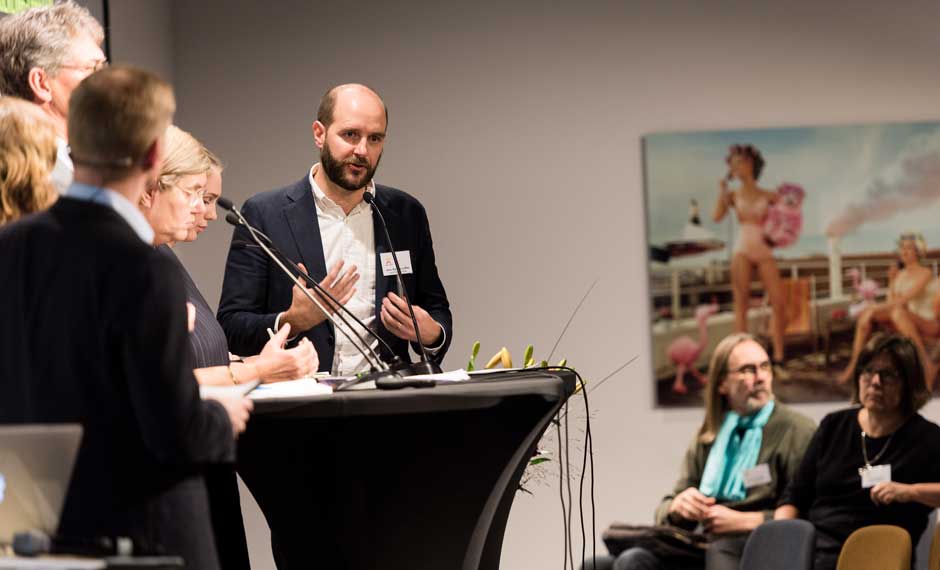To what extent do researchers want to communicate with the external world? What barriers do they face and what type of support would be of help to them? Are they aware about the transition towards open science and what do they think about it? This week, a survey on communication and open science is being sent to a large proportion of researchers at Swedish universities.

The survey is being conducted by VA (Public & Science) in collaboration with the Swedish Research Council, Vinnova, Forte, Formas and the Bank of Sweden Tercentenary Foundation. The survey looks at communication from a broad perspective with the aim of gaining up-to-date knowledge about researchers’ views on communication with the outside world, the factors that affect it, as well as their opinions on open science.
Why is the survey being done now?
In recent years, there has been increasingly more focus on communication and engagement between researchers and society. It is a clear part of the latest national research bill Knowledge in collaboration and central to the European Commission’s vision and the Competitiveness Council’s decision in 2016 on the transition towards an open scientific community. This transition will bring about several changes to the way researchers work. In order to be able to meet these expectations and requirements, it is important that we highlight researchers’ perspectives.
“Communication is not easy and science communication has specific challenges. Through this study we will be able to find out what researchers in Sweden think about their role and what barriers they see when communicating with the outside world,” said Ethel Forsberg, Director General of the research council Forte.
Similar studies have been conducted in recent years in other countries, such as the UK and Norway. But very little is known about what Swedish researchers think about these issues. About a year ago, VA (Public & Science) together with the Swedish Research Council conducted an interview survey on the same theme. The results showed that the interviewed researchers would like to do more communication than they feel they have the time and opportunity to currently do and that they feel restricted by the fact that communications work is not sufficiently valued. But from the interviews it is difficult to say how these attitudes reflect the research community at large and whether they differ between different groups of researchers.
“Researchers are a heterogeneous group. It isn’t clear whether issues are experienced in the same way by researchers in different areas, at different stages of their career or between men and women. The survey gives us the opportunity to identify these types of differences,” said Gustav Bohlin, a researcher at VA (Public & Science), who is responsible for the survey.
What is the survey about?
The questions have been designed during the autumn in consultation with a reference group consisting of researchers, funders, communication professionals and librarians. Some of questions about communication focus on researchers’ own experiences and others about their attitudes to communicating their own research with the outside world. The questions about open science investigate the extent to which researchers are aware about the concept, what they associate with open science and how they view this development.
“Researchers in the previous interviews expressed both confidence and concern about the transition towards open science. The vision and decisions about open science are to a large extent formulated from a policy perspective. It is important to investigate how these decisions affect research and researchers, which is the purpose of this investigation,” said Sven Stafström, Director General of the Swedish Research Council.
How will the results be used?
Researchers are increasingly expected to do more communication, but it isn’t clear how best to encourage this. For those who wish to allocate more resources to support researchers to carry out communication activities, it is important we know how this should be put to best use.
“We need to know more to be able to strengthen opportunities for research findings to be used in different parts of society. Findings may be communicated both to specific target groups as well as more widely to increase knowledge levels in different areas. The projects that are funded by us must be of high scientific quality and be of relevance to society. How researchers communicate is therefore of highest importance to us,” said Ingrid Petersson, Director General of the research council Formas.
The aggregated responses will provide an evidence base to inform the strategic development of both policies and support structures within Higher Education Institutions and amongst research funding bodies. The results will be compiled in a report to be made publicly available in autumn 2019.
Read more about the project here.
